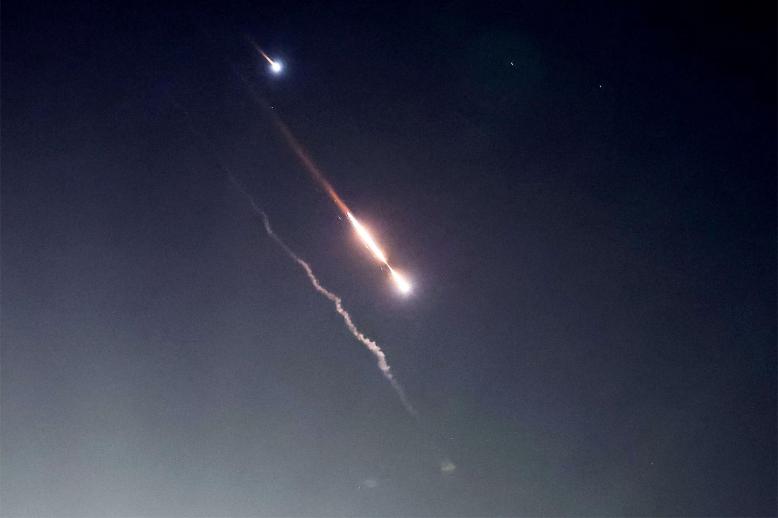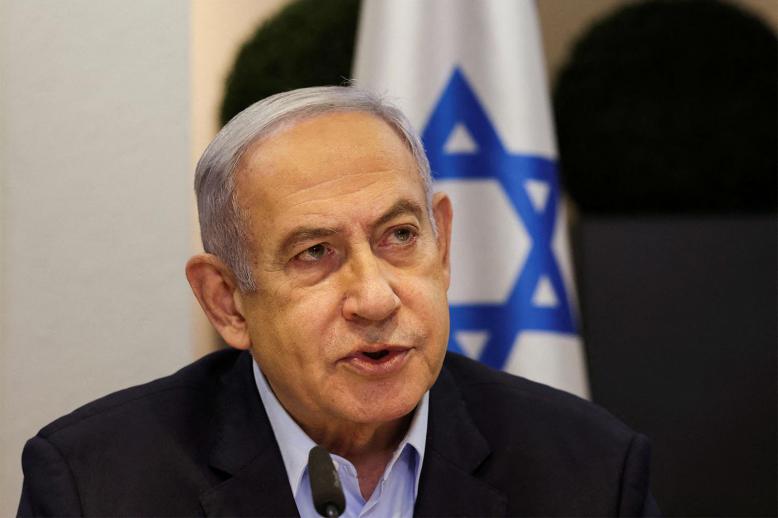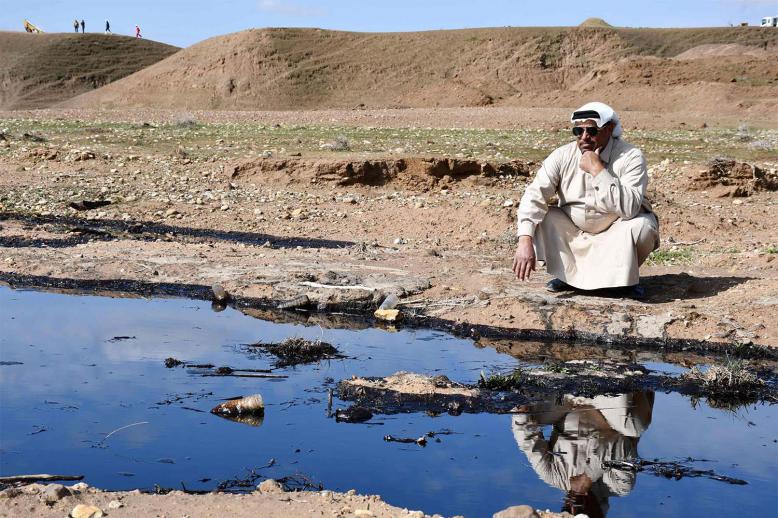Erdoğan Tries to Fix his Election
When Turkey’s Grand National Assembly amended the country’s electoral law on 13 March, a brawl broke out in parliament between ultranationalists allied to President Recep Tayyip Erdoğan’s ruling AKP (Justice and Development Party) and members of the opposition CHP (Republican People’s Party). With the repression that has followed the failed coup of July 2016, the new law shows Erdoğan’s determination to expand his power and ensure he wins the next election.
Elections (legislative and presidential) are due on 3 November 2019, the first since the constitutional reform of April 2017, which replaced a parliamentary system with a presidential one. Erdoğan has clearly learned from his poor showing in the referendum, when his proposal for a presidential regime secured just 51.3%, far from the endorsement he had hoped for, especially as the biggest cities (Istanbul, Ankara, Izmir) voted no. He now aims to be re-elected with a much bigger vote so he can claim legitimacy for lavish celebrations of the Turkish republic’s centenary in 2023. To gain greater control of the electoral process, he aims to strengthen the new and unprecedented alliance between his Islamic-conservative AKP and the ultranationalist far-right MHP (Nationalist Movement Party), which is anti-Kurdish and anti-European, and supported the 2017 constitutional reform.
Under the new electoral law, ballot papers without an official stamp will be accepted. Previously they were disqualified to prevent fraud, though in the 2017 referendum the Supreme Electoral Council accepted almost 1.5 million of them; that put the opposition at a great disadvantage (they say this figure corresponds to Erdoğan’s winning margin). The CHP and its eight opposition allies consider the amendment ‘an open door to fraud and a serious threat to free and fair elections’.
With some voters deserting him, Erdoğan needs new supporters. He may still have his AKP base, but sympathisers of Fethullah Gülen’s Hizmet (service) movement have withdrawn their support because of the crackdown on them, as well as the scandals surrounding Erdoğan and his entourage. Support has also declined among conservative Kurdish voters who used to vote AKP.
So on 22 February, in hope of new votes among the ultranationalists, he made a pact with the MHP’s Devlet Bahçeli in Ankara. After weeks of negotiations, the parties agreed to campaign jointly in 2019, in an alliance that would have previously been prohibited. Erdoğan untypically praised the MHP for its ‘patriotic position’ in the 2016 failed coup and extolled the pact’s founding principle that ‘when the country is at stake, everything else is just details.’ In return, Bahçeli pledged MHP support for Erdoğan’s re-election campaign. This may mean that Bahçeli’s longstanding close links with the far-right paramilitary Grey Wolves will be forgotten, along with the fact that he was once one of the AKP’s fiercest opponents, often trading criticism and even insults with it.
The electoral change permitting an AKP-MHP joint ticket may mean survival for the MHP, since a party in an alliance does not need to reach the normal 10% threshold. (According to most polls, the MHP is unlikely to clear that threshold in 2019.) This has enraged the opposition. Meral Danış Beştaş of the HDP (People’s Democratic Party), a progressive, pro-Kurdish organisation that has been decimated by arrests and repression, says: ‘This electoral reform has established fascism in our country.’ Selahattin Demirtaş, a sworn enemy of Erdoğan who (co)headed the HDP, has been in prison since November 2016 for alleged links with the PKK, and could be sentenced to over 142 years. He has made it clear that he will not be standing again for HDP leadership and will not contest the 2019 election.
The opposition fears that the speed with which the new law was enacted means the elections will be brought forward. For that, parliament would have to suspend the current state of emergency, extended periodically since 2016, most recently in January. HDP and CHP members of parliament suspect Erdoğan wants to take advantage of the need for national unity resulting from the failed coup and from the army’s intervention in northern Syria against the Arab-Kurdish forces of the YPG (People’s Protection Units), the armed wing of the PYD (Democratic Union Party), a Syrian group believed to have PKK links.
In March Erdoğan denied wanting to bring elections forward, but didn’t convince the opposition or the now largely pro-AKP press. ‘If he has a window of opportunity, the president will bring forward the elections,’ a journalist on Milliyet told me. ‘His greatest worry is his electoral base switching sides en masse.’
Is Erdoğan guided by electoral arithmetic or is there really convergence between his beliefs and the MHP’s? The MHP has long had a religious element: In the late 1970s its founder, Alparslan Türkeş, declared that nationalism was his party’s policy but Islam was its soul. And there was an internal split in the 1990s, when some activists criticised the party’s secular tendencies. Some joined Islamo-nationalist groups, including the BBP (Great Unity Party), which has little in common with the AKP.
An Istanbul businessman and former AKP MP told me: ‘The MHP’s anti-European rhetoric isn’t too far from the president’s views. And the two parties now agree that the Kurds need reining in. Erdoğan has always had nationalist inclinations, though he doesn’t reject the idea of an umma [community of believers] extending beyond our borders. Today everything he says is to convince nationalists to support him. The MHP made no concessions on political ideology to secure the electoral pact, quite the reverse.’
Erdoğan’s recent initiatives could be viewed in the light of his rapprochement with the MHP. No one can trump his nationalist credentials since Operation Olive Branch, the military intervention in northern Syria (begun on 20 January). The primary targets are YPG ‘terrorists’ but also their ‘mercenary allies from the West’, a reference to a few hundred volunteers fighting alongside the Kurdish troops who defeated ISIS (Daesh) with international coalition air support. On 10 March Erdoğan sharply criticised NATO, to which Turkey has belonged since 1952. ‘We were in Somalia. We were in Afghanistan. We were in the Balkans,’ he said in a speech to supporters in Bolu, between Istanbul and Ankara. ‘We were in all of these places; yet, hey NATO, when will you come forward and stand by us while all these incidents are occurring in Syria?’
In 2010 Erdoğan called for NATO’s help against PKK bases in northern Iraq. He knew this request would not be heeded, because several NATO members supported the YPG-dominated SDF (Syrian Democratic Forces) with air cover, state-of-the-art equipment and special forces. He thought the request worth making to exploit Turkish national feeling. In a country where a conspiracy-theory novel about war with the US is a bestseller, the exploitation of anti-US feeling has broad appeal. Columnist Kurtuluş Tayız wrote in the (pro-government) Akşam on 13 March: ‘NATO and the US are behind the organisations threatening Turkey, its sovereignty and its territorial integrity. It’s time we questioned our relationship with Washington and NATO.’
A changed relationship with NATO would be a major rupture, as the Turkish army was the first line of defence against the Soviet Union throughout the cold war, as Turkish leaders never tire of reminding their European and US counterparts. Erdoğan often speaks of western ‘ingratitude’. When the US press announced that Washington, concerned about tensions with Turkey, would reduce the use of its strategic bombers at Incirlik air base (a claim denied by the Pentagon), Turkey’s foreign minister Mevlüt Çavuşoğlu, pointed out that the base was ‘first and foremost Turkish property, not NATO’s’.
The MHP backs the government’s anti-European and anti-US rhetoric, pretending to forget that the Grey Wolves, with whom it had close links in the 1970s and 80s, also had close ties to the CIA and the clandestine anti-communist ‘stay-behind’ networks set up by NATO (part of Turkey’s ‘deep state’). It also backs Erdoğan’s often-repeated promise to reconsider reinstating the death penalty.
MHP leaders are less enthusiastic about the possibility of rapprochement with Iran and Russia. Bahçeli believes Iran is ‘profiting from Turkey’s regional problems’ and the prospect of a non-aggression treaty with Russia (mentioned in the daily Sabah on 11 March) ‘does not appeal’. The MHP remains faithful to a Turkocentric vision of international relations, something Erdoğan will have to bear in mind.
But his strategy is risky. Some of the Islamists are unimpressed by his switch to nationalism. Temel Karamollaoğlu, leader of the Islamist Felicity Party (Saadet Partisi, SP), which has been in the AKP’s shadow since 2002, supports the intervention in northern Syria, but is trying to win support among conservative Muslims, who dislike the MHP’s extremism and anti-religious attitude.
There is no guarantee that the MHP can deliver Erdoğan’s extra votes. Many of its activists have gone over to the Good Party (İyi Parti), set up in October 2017 by Meral Akşener, formerly prominent in the MHP and a critic of the alliance with the AKP. Akşener, who served as defence minister in 1996-97 and interior minister in 2008-09, defines herself as nationalist and secular and hasn’t disguised her presidential ambitions. Her critical views of the government have won support among the most rightwing CHP voters as well as former AKP sympathisers, who are reassured by the fact that she is now highlighting religion in all her speeches. In February a much-quoted opinion poll by the Gezici Institute concluded she would win a run-off against Erdoğan in the second round of the coming election.
If re-elected, no one knows Erdoğan’s intentions beyond his obsession with making Turkey one of the world’s top ten economies. This, he says, ‘will banish Turkey’s sick man image and prove its dynamism’ (a reference to the Ottoman empire’s declining status from the mid-19th century). The major projects the government has initiated are symbolic of this: Istanbul’s new airport, due to open next autumn, will be able to handle 150 million passengers a year, a world record.
If he remains in power, will the reis (leader), as his party faithful call him, return to a more traditionalist programme, such as the Islamisation of state institutions, as the HDP, CHP and Good Party suspect? If so, today’s allies could become his enemies, and his targets. Wasn’t he once the Turkish leader most open to dialogue with the Kurds, until he turned violently against them?
Akram Belkaïd is a member of Le Monde diplomatique’s editorial team. Translated by George Miller.
Copyright ©2018 Le Monde diplomatique — distributed by Agence Global



